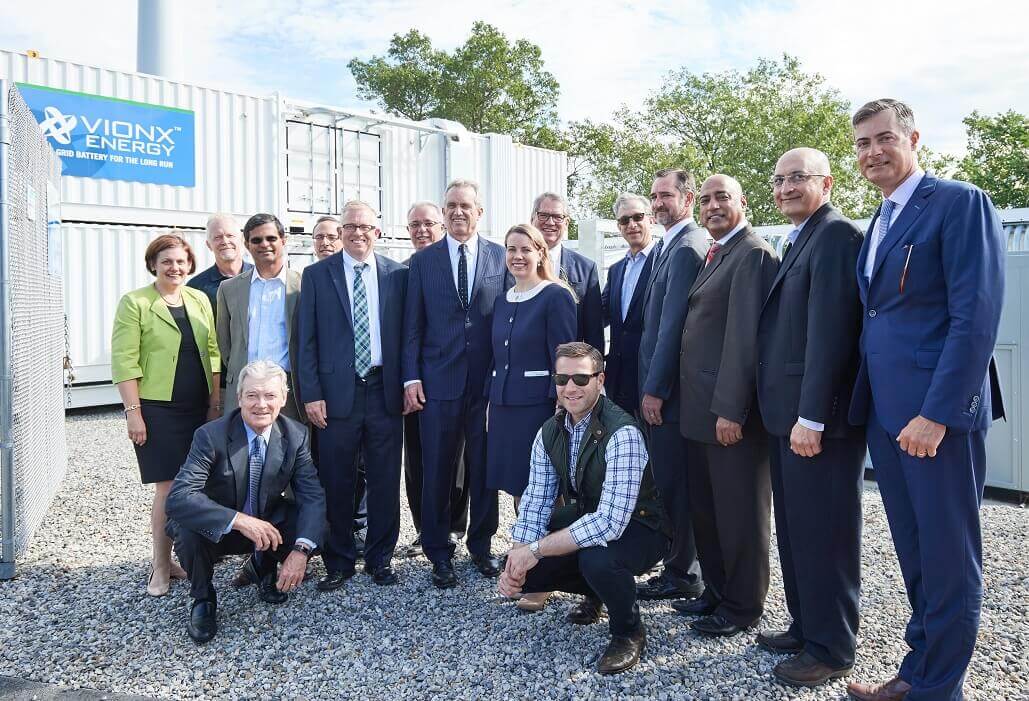
Vionx, National Grid and the US Department of Energy have teamed up to install a 3MWh flow battery-based energy storage system in Massachusetts.
The installation at Holy Name High School, MA, is one of the largest flow batteries in the United States and is designed for a 20+ year lifetime, during which it will retain its full storage capacity.
Power from intermittent renewable energy sources will be stored in the Vionx unit that can store and discharge energy for up to 6 hours per day.
Dr. Randhir Thakur, Vionx Energy’s lead director, said, “Vionx Energy’s Battery system represents a revolutionary, safe and reliable new path in grid storage solutions for the long-run for both utility and distributed scale applications.”
Try Premium for just $1
- Full premium access for the first month at only $1
- Converts to an annual rate after 30 days unless cancelled
- Cancel anytime during the trial period
Premium Benefits
- Expert industry analysis and interviews
- Digital access to PV Tech Power journal
- Exclusive event discounts
Or get the full Premium subscription right away
Or continue reading this article for free
Energy is stored from the school utility scale wind turbine and from the surrounding community, where there are various power generation sources.
The energy storage component will assist Holy Name in its target to go off-grid while offering onsite learning opportunities for students on how the system works.
Flow batteries are considered to be an economically viable, durable energy storage medium and an alternative to lithium-ion batteries. The systems use tanks of liquid electrolyte to store energy. However, I.H.S Markit analyst Julian Jansen recently said that while there are advantages to flow batteries, especially in their scalability for longer duration applications, lithium costs are falling so rapidly and lithium batteries are considered far more ‘bankable’ for project investors as the more established technology that lithium is likely to dominate the market overall, even at some longer durations.
Despite this, rival research firm Navigant found that in ‘non-lithium niches’, flow batteries are leading the way, taking about 5% of the global energy storage market share and second only to lithium in that respect – while lithium-ion comprises almost 95% of the remainder.
Robert F. Kennedy, Jr, board of Directors at Vionx, said the project for Holy Name was a “breath-taking solution” and “game changer”, adding, “The consequences of that new reality cannot be understated”.
Among the handful of vanadium redox flow energy storage system manufacturers operating today, with others including Primus Power, VIZn Energy, Redflow, Sumitomo, Rongke Power and Redt, VIONX has been among the more successful in attracting investment funding – the company netted US$12.75 million in venture capital (VC) funding in the second quarter of 2017 and raised US$58 million during 2015, according to reports from clean energy financial market tracker Mercom Capital.
The project was developed with support from the US Department of Energy who praised the collaboration and asserted this type of innovation as the reason for Massachusetts’ leadership in the renewable energy field. The state is also among the first to have put energy storage into its policy decisions, after electric distribution companies were requested to adopt an “aspirational” i.e. non-binding or mandatory target, to deploy 200MWh of energy storage by 2020.





